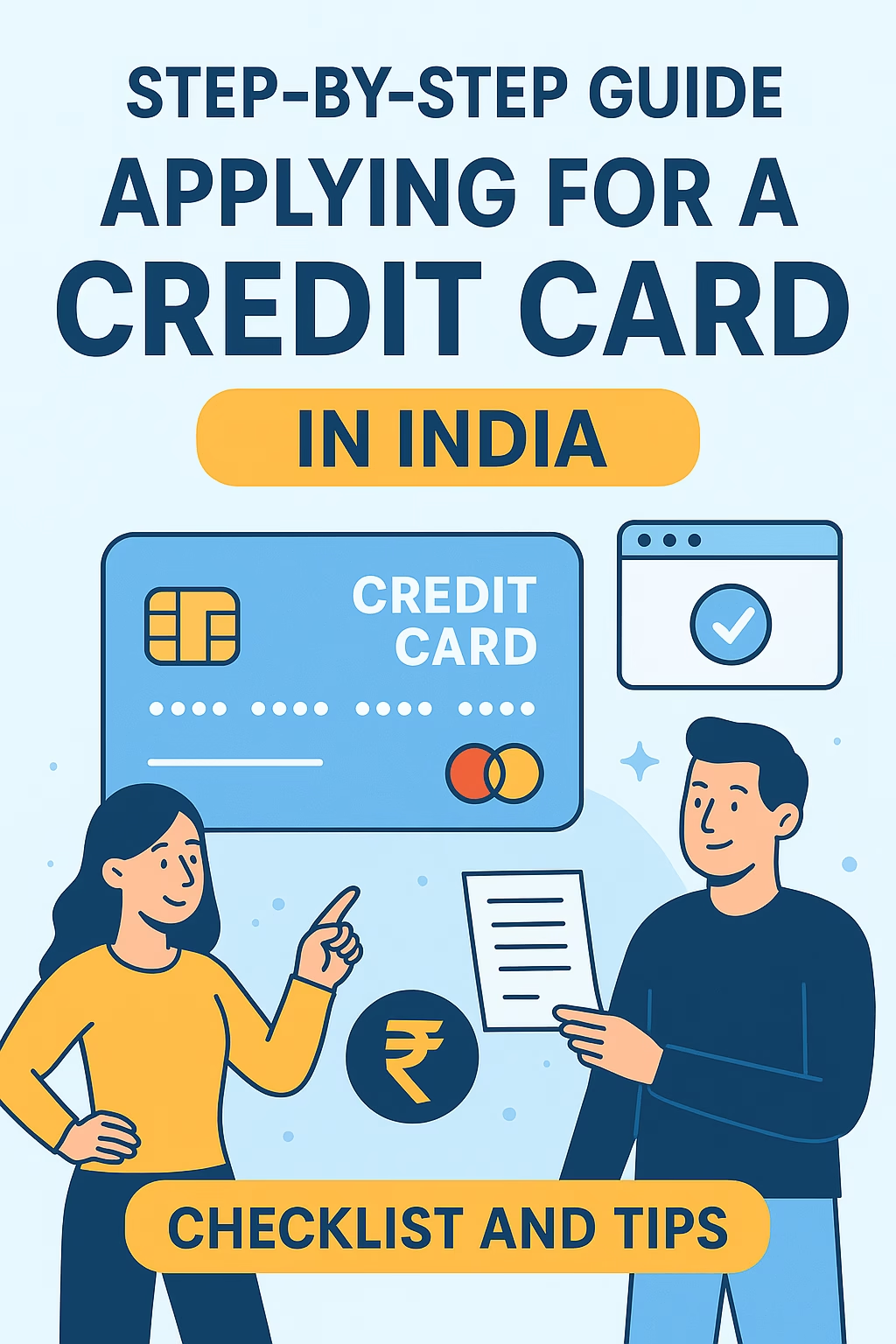Applying for a credit card in India has become easier than ever, thanks to online applications, instant approvals, and a wide variety of cards tailored for different spending habits. But for many first-time applicants, the process can feel overwhelming. Which card should you choose? What documents do you need? How long does it take for approval?
This guide will walk you through the entire process of applying for a credit card in India — step by step.

1. Understand Your Needs
Before applying, it’s important to ask yourself why you want a credit card. Different cards serve different purposes:
-
Cashback cards → Best if you want savings on everyday spends (groceries, fuel, dining).
-
Travel cards → Ideal for frequent flyers; perks include free lounge access and air miles.
-
Shopping cards → Partnered with Amazon, Flipkart, or lifestyle brands for discounts.
-
Premium cards → Suited for high-income users, with luxury benefits but higher fees.
👉 Example: If you spend ₹20,000 a month on travel, a HDFC Regalia or Axis Atlas could save you more in rewards compared to a generic cashback card.
2. Check Eligibility Criteria
Every bank sets minimum requirements. While these vary, some common eligibility rules are:
-
Age: Usually 21 to 60 years (sometimes students can apply with add-on cards).
-
Income: Salaried applicants typically need a minimum ₹20,000–₹25,000 monthly income for entry-level cards; premium cards may need ₹1 lakh+.
-
Credit Score: A CIBIL score of 700+ increases approval chances.
-
Employment: Stable job history (for salaried) or ITR proof (for self-employed).
💡 Tip: If you’re a first-time applicant with no credit history, start with a secured credit card (against fixed deposit) to build your score.
3. Compare Cards Online
Don’t just apply for the first card you see. Use comparison tools (like our Rewards Calculator) or visit bank websites. Compare:
-
Joining fee & annual fee
-
Rewards/cashback structure
-
Hidden charges (late payment, forex markup)
-
Lifestyle benefits (lounges, dining discounts, insurance)
Choosing the wrong card can cost you in annual fees without giving enough rewards back.
4. Gather Required Documents
Banks will need KYC and income proof. Keep these ready:
-
Identity Proof: Aadhaar, PAN, Passport, or Voter ID
-
Address Proof: Utility bill, Aadhaar, Passport, or Rental Agreement
-
Income Proof: Salary slips (last 3 months), bank statements, or ITR (for self-employed)
-
Photograph: Passport-size
Having these ready makes the process faster.
5. Apply Online or Offline
Most banks now allow 100% online applications. The process is simple:
-
Visit the bank’s website or credit card comparison portal.
-
Fill in personal details (name, PAN, income, employment).
-
Upload scanned documents.
-
Complete video-KYC (many banks do this now).
Alternatively, you can apply offline by visiting a bank branch or when approached by a sales agent.
6. Wait for Verification & Approval
Once you apply:
-
Bank runs a credit check with CIBIL.
-
They may call for tele-verification.
-
In some cases, an executive may visit for document verification.
Approval times vary:
-
Instant approval cards → Within minutes (for existing customers).
-
Standard applications → 5–10 working days.
7. Receive Your Card & Activate It
Once approved, the card is delivered to your address. Next steps:
-
Activate it via net banking, mobile app, or phone banking.
-
Set a PIN.
-
Add it to UPI apps (like Google Pay, PhonePe) for convenience.
-
Note down billing cycle dates to avoid late payments.
8. Use Responsibly & Build Credit Score
Getting a card is only step one. To make the most of it:
-
Pay the full bill amount (not just minimum due).
-
Keep credit utilization under 30% of your limit.
-
Avoid multiple new applications in a short span.
-
Track rewards and redeem them smartly.
👉 Good credit habits ensure higher credit limits and easy approval for premium cards later.
Final Thoughts
Applying for a credit card in India is straightforward if you know the process. The key is choosing a card that matches your lifestyle, ensuring you meet the eligibility, and maintaining good credit habits after approval.
A well-chosen card isn’t just a payment tool — it can save you thousands every year in rewards, cashback, and benefits.
💳 Find Your Perfect Credit Card
Not sure which card suits you best? Try our Credit Card Finder Tool and get personalized recommendations in minutes.
Try the Finder Tool 🚀
Leave a Reply